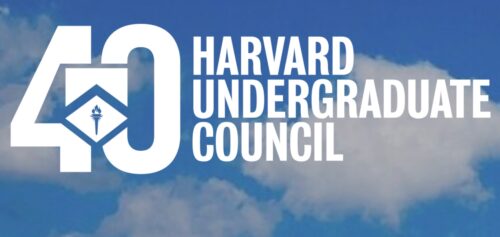Already the Fall 2021 Harvard Undergraduate Council presidential election was wrought with controversy leading up to the start of voting on November 11th. The council dissolved a ticket that allegedly broke rules on early campaigning and presenting false information, which was then reinstated after the Dean of Students office intervened. Another ticket accused the UC of tax fraud after highlighting that they had not re-registered as a non-profit since 2008 and had their status revoked in 2012. The voting form had a formatting mistake that made it harder to vote for another ticket, which led to the election re-starting after voting had begun at 12:00 PM.
The winners, Michael Cheng ’24 and Emmett de Kanter ’24, ran on a campaign to “Defund the UC.” They were also the ticket initially affected by the formatting mistake. Cheng, a current representative, ran out of a sense of frustration with the current structure and operations of the UC. He and Kanter pointed to a report by the Harvard College Open Data Project finding that the UC lost track of $100,000 and had other funding disparities. They promised to rewrite the constitution using the UC’s own rules that allowed any constitutional referendum to be put to the students for a vote. In an editorial for The Crimson, de Kanter expressed hope that they could restructure the council and implement their improvements.
However, that optimism was quickly dashed when the UC proposed a new act that they claimed would potentially limit their agenda. On their November 21st meeting, the UC began voting on act 40F-78, “An Act to Clarify Our Referendum Process,” which makes it harder to change the constitution via referendum. The original constitution read that “A referendum/proposition passes if a simple majority of students votes in favor,” and that a referendum on constitutional measures could not be vetoed by the Council and would automatically update the bylaws.
The 40F-78 act changes that section to read, “An advisory referendum/proposition passes if a simple majority of students voting in that election vote in favor. A binding referendum passes only if a simple majority of all students vote in favour [sic],” though with the same rules on updating the bylaws. This means that any constitutional changes would have to be approved by a majority of all Harvard undergraduates, even as UC Elections have long drawn low turnout among the student body—just twenty six percent of upperclassmen voted in the 2019 representative election, according to the Harvard College Open Data Project.
From the UC’s “Gen Agenda 11/21/2021” document. The agendas and meeting notes for the Fall 2021 session are not on the website at the time of publication.
The act was sponsored by the outgoing UC President Noah Harris ’22, Vice-President Jenny Gan ’22, and Rules Chair Jack Swanson ’22. At the time of this publication, the act has a vote count of 30-14 with one abstention. The amendment requires two-thirds of the UC to vote and three-fourths of those voting to affirm it before 4:00 PM on Sunday, December 5th, which is also the presidential inauguration. So far, 45 out of the council’s 52 members have voted, but the three-fourths threshold has not been met.
The UC has not sent out an update email regarding the meeting, and their website still does not have any meeting minutes and agendas for its Fall 2021 sessions at the time of publication.
Additionally, an article of the November 21st meeting by The Crimson does not include any mention of the act, even though it was discussed and voted on that day.
Cheng was outraged by the act and voted against it, and he soon organized a campaign to pressure the other representatives to vote “no” before the deadline. He put up posters and submitted a petition on Change.org alleging that “instead of listening to the results of the election, the Undergraduate Council’s leaders are trying to pass a last-minute bill, 40F-78, that would override the election results and stop any real change to the Undergraduate Council from occurring, during the lame-duck period prior to the inauguration on December 5.” The petition has gathered 236 signatures as of now and includes an email list of all the UC representatives, urging people to contact them. Cheng also outlined his frustrations in an opinion piece for The Wall Street Journal, published in its November 30th print edition.
At the meeting, the act was pitched by its sponsors as a way to both improve democracy and to prevent students from pitching frivolous petitions. In the constitution’s current form, there is technically nothing stopping a dedicated group of students from submitting any petition so long as they get signatures from ten percent of the student body. An energized minority could whip enough votes to submit a harmless joke or a severe constitutional change that would immediately take effect after passing a general student vote with little accountability. The act’s preambulatory clause frames the changes as a matter of “checks and balances.”
However, Cheng objected to the timing of the legislation, noting that it was proposed right after his ticket had promised to submit constitutional changes via student referenda as a last resort if the UC was too obstinate with their reforms. “It’s clearly targeted at our plan, trying to neuter us and override the election results,” Cheng said. He claimed that under these new rules, students opposed to an amendment would be incentivized to skip voting because it would be functionally the same as voting against it. “It’s pretty obviously designed to prevent any change at all,” he said.
The act’s sponsors have not responded to inquiries at the time of publication.
This is a breaking news report. Updates will be added pending new developments.Ryan Golemme ’23 (ryangolemme@college.harvard.edu), who loves getting news scoops, writes for the Independent.

